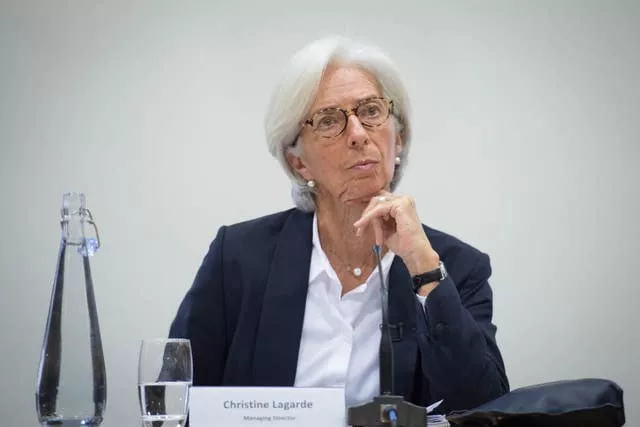The European Central Bank (ECB) has kept its key interest rate at a record high and is now facing expectations it will start cutting borrowing costs next year to support the shrinking economy.
It follows similar decisions this week by the US Federal Reserve, Bank of England and Swiss National Bank to leave rates unchanged. The Fed also signalled it could make three interest rate cuts next year.
The ECB said it is keeping its benchmark rate at 4% because inflation was “likely to pick up again temporarily in the near term”.
Central banks around the world drastically raised rates to contain inflation that broke out in the wake of the Covid-19 pandemic and Russia’s invasion of Ukraine.

They are now trying to balance keeping rates high enough for long enough to make sure inflation is contained against the risk that higher borrowing costs could throw their economies into recession.
Inflation has fallen more than expected in the 20 European Union countries that use the euro currency, to 2.4% in November from a peak of 10.6% in October 2022. That is not too far from the ECB’s goal of 2%, considered best for the economy.
That has led analysts to predict the ECB will cut rates next year, though the timing is not certain and forecasts range from March to September for the move. The bank’s key rate stands at an all-time high of 4%.
ECB president Christine Lagarde will lay out her view of the economy at a news conference that will be closely watched for any signals about rate cuts. Ms Lagarde, however, has said the bank will make decisions based on the latest information about how the economy is doing.
While inflation is down following a record pace of rate hikes, economic growth has lagged because the cost of borrowing has surged for things such as home purchases and business investment in new offices and factory equipment. The eurozone saw economic output shrink 0.1% in the July-September quarter.
Meanwhile, wages are still catching up to higher prices in shops, leaving European consumers less than euphoric even as European city centres deck themselves in Christmas lights.







